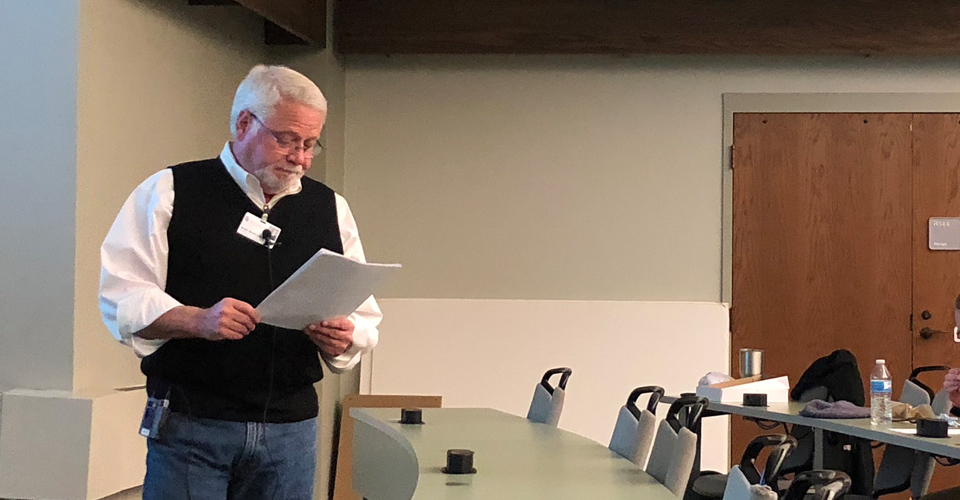What is Post-Traumatic Stress Disorder (PTSD)? Ross Henschen, M.D. (’81), a retired clinical professor of emergency medicine, quizzed a group of students from the Emergency Medicine Interest Group (EMIG) in Meshel Hall, April 19.
Dr. Henschen explained to students that he was not there to deter them from a career in emergency medicine, but to make students aware of the potential risks, such as PTSD, that are associated with careers in medicine. PTSD is an anxiety disorder that manifests itself through symptoms including anger and irritability; nightmares and sleep difficulty; depression; addiction; and emotional isolation.
“PTSD is a disease—no question about it. It is also very hard to self-recognize,” said Dr. Henschen, a 29-year emergency medicine veteran.
Playing the tough guy
Dr. Henschen explained to students that as emergency physicians, they will be considered “the tough guys.” That expectation is not easy to live up to, since they are still human.
“You have an emotional reflex to everything you see and do. The difference in being an emergency medicine physician is that you don’t have an hour or two after you have a tough patient to resolve those emotions,” said Dr. Henschen.
All acute care providers—first responders, emergency room nurses and others—are prone to this anxiety disorder. While helping others, these caretakers also need to tend to their own mind, body and souls to prevent and combat PTSD, explained Dr. Henschen. Care providers need to feed, exercise and nurture each of these “human parts’’ of their bodies.
Guarding against PTSD
How can young physicians prevent PTSD?
Dr. Henschen suggests setting up monthly appointments early on in their career with a counselor who specializes in trauma. Don’t wait for symptoms. Recognize that you’re going to be in highly stressful situations, and take this proactive move to protect yourself, he urges.
Students in an emergency medicine rotation (or any other rotation) who want help or a listening ear can make an appointment with Counseling Services. Call 330-325-6757, or email counseling@neomed.edu.
“It is imperative that on a regular basis you check yourself, your relationships, and most importantly, your soul,” said Dr. Henschen.
“ER is a great career. You do a lot of good for a lot of people, but you see a lot of stuff.”
